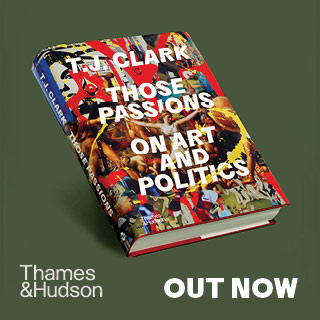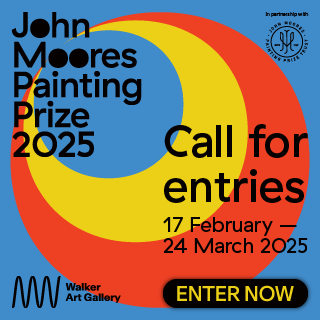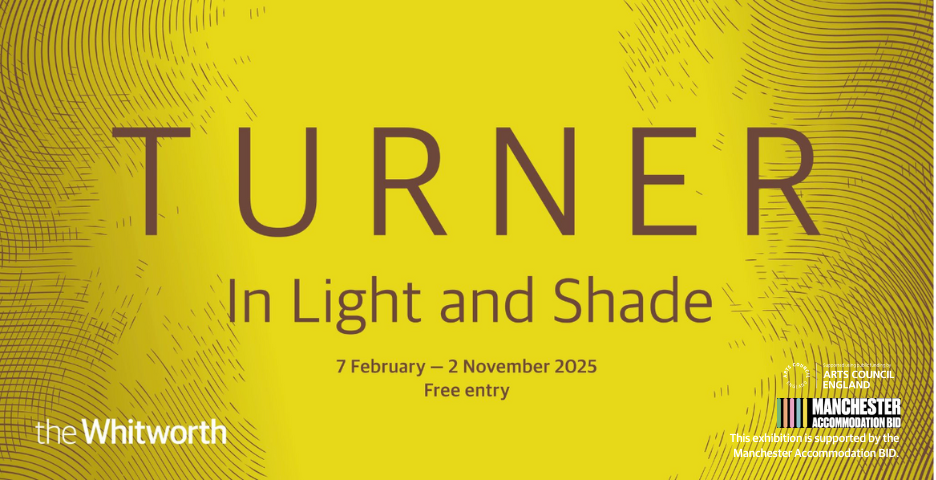Art Monthly 359
September 2012
Tino Sehgal
Talks to Jennifer Thatcher
Olympic Art
Jennifer Thatcher
#Occupy Art
Maja and Reuben Fowkes
Una Knox
Profile by Martin Herbert
Buy Now – select:
Want to read this right now?
Get instant access to the entire back catalogue via Exact Editions from only £8.99!
Contents
Feature
Tino Sehgal
Jennifer Thatcher talks to Tino Sehgal
Tino Sehgal is a key figure in the rise of participatory art, using performers – or 'interpreters' – to engage with audience members. Here he discusses his current commission for Tate Modern's Turbine Hall, his reliance on art galleries for context, the motivations driving his interpreters and his work's avoidance of open-ended public engagement through a strict adherence to 'the craft of composition'.
'Unlike our name-badge culture of faux-intimacy (Hello, my name is Bob, how can I help you?), these interpreters remain anonymous. Yet that anonymity "paradoxically allows for greater intimacy", Sehgal argues, "when you meet a stranger on a train, you can always say more."'
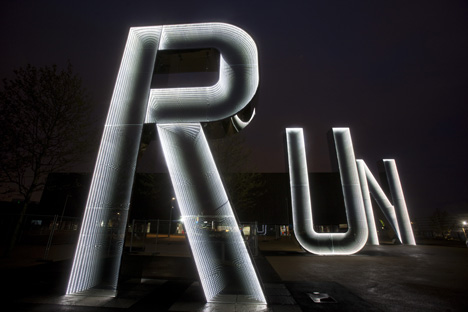
Monica Bonvicini RUN 2012
Feature
Olympic Art
Jennifer Thatcher samples the Cultural Olympiad
The art projects tied to the London 2012 Olympics vary wildly in ambition and intention, from spectacular experiences aiming match the drama of the sporting events to low-key interventions in the public realm. But do these projects ultimately share a single purpose: to smooth an East London neighbourhood's forcible shift from run-down creative centre to Ballardian gloss-brochure wasteland?
'Despite boasting the largest cultural event in Olympic history, the London 2012 Festival still represents only a thin and rather arbitrary slice of visual art in Britain, some projects constrained by sticking too literally to the Olympics theme, others appearing to question their involvement at all.'
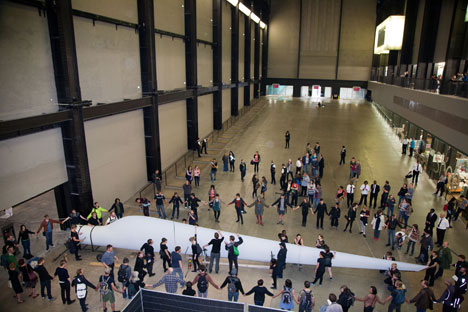
Liberate Tate The Gift 2012
Feature
#Occupy Art
Maya and Reuben Fowkes on the Occupy effect on contemporary art
A year after Occupy Wall Street began, the Occupy movement has become such a potent symbol of protest that artists and curators have scrambled to embrace it. Interestingly, however, protest artists are redefining artistic success outside the gallery system.
'Curators are visibly torn between a desire to embrace the zeitgeist symbolised by popular movements from the Arab Spring to Occupy Wall Street, together with their exciting new tactics of rebellion from the use of social media to the continuous occupation of public space, and wariness of the micro-political implications of the call to "occupy everything" for their own power structures and practices.'
Comment
Editorial
Bread and Circuses
The opening and closing ceremonies of the London 2012 Olympics were as much about promoting Brand Britain as they were an apparently uninhibited celebration of British multiculturalism and much-loved institutions like the NHS. But what were audiences supposed to make of the choice of the symbol of the phoenix during the closing ceremony?
'Someone had the bright idea of erecting a phoenix above the torch symbolising – what, precisely? An ancient symbol of rebirth and renewal it may be, but before the phoenix can be reborn from the ashes, there must first be destruction, which is why, presumably, it was adopted in recent times by the Provisional IRA.'
Letters
Leigh French, editor of Variant magazine, makes the case that Creative Scotland's restructuring of its funding mechanisms is effectively an illegal centralising of power that will gut the Scottish art world that it is intended to support.
Artnotes
Unofficial art projects put pressure on the sponsors of the London 2012 Olympics; LA Museum of Contemporary Art lurches into a full-scale, mass-resignation crisis; an evening art walk in LA ends with riot police firing into the crowd; Oliver Ressler wins a court case against a right-wing Austrian political party that misappropriated his artwork for an election campaign; all the latest news on galleries and more.
Submissions: Send Artnotes info to artnotes@artmonthly.co.uk
Obituaries
Stephen Dwoskin 1939-2012
Chris Marker 1921-2012
Franz West 1947-2012
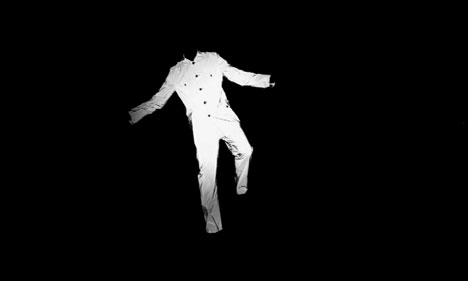
Una Knox Tell me what they call you 2010
Profile
Una Knox
Martin Herbert on the London-based video artist
Canadian-born artist Una Knox asks us to think about the way we know ourselves and the world around us, throwing into question the internal assumptions we make when constructing our sense of self and reality. What makes such complex, abstract ideas compelling in her work, however, is the way they are anchored within everyday scenarios.
'Are we, though we appear single, actually plural? Do determinist doubles inside ourselves – not necessarily sympathetic ones – guide our actions? We cannot know and, if we think we do, we cannot be sure. This is a central part of the epistemic anxiety coursing through Knox's art.'
Reviews
Exhibitions
Alternativa 2012: Materiality/Now is Now
Wyspa Institute of Art, Gdansk
Teresa Gleadowe
Anri Sala: 1395 Days without Red
Irish Museum of Modern Art, Dublin
Curt Riegelnegg
Douglas Gordon: The End of Civilisation
Tyne Theatre, Newcastle upon Tyne
Paul Usherwood
Stanya Kahn: It's Cool, I'm Good
Cornerhouse, Manchester
Laura Allsop
Olivia Plender: Rise Early, Be Industrious
Arnolfini, Bristol
Laura Allsop
Ian McKeever: Hartgrove
Josef Albers Museum, Bottrop
Mark Prince
Michael Samuels: This Was Tomorrow
Spacex, Exeter
David Trigg
Accidentally on Purpose
Quad, Derby
David Trigg
Dieter Roth: Diaries
Fruitmarket Gallery, Edinburgh
David Briers
Better Books: Art, Anarchy and Apostasy
Flat Time House, London
Andrew Hunt
The London Open
Whitechapel Gallery, London
Nicholas Warner
London Round-up
Cartel, ASC Gallery, George and Jørgen, Jonathan Viner Gallery
Chris Fite-Wassilak
Reviews
Artists' Books
Apeirophobia
Colin Perry experiences a fear of infinity
'Karen Kihlberg & Reuben Henry's Apeirophobia is an anti-catalogue that remixes and expands upon works made by the duo over the past few years. Its modest format invites you to read it as, say, a novel or volume of poetry, but it quickly shrugs off any attempt at linearity, and one finds oneself shuttling back and forth between image and text.'
Reviews
Books
Claire Bishop: Artificial Hells
Morgan Quaintance tackles a history of socially engaged participatory art
'Claire Bishop explains that the dominance of ethical and moral judgement is killing aesthetic assessment in an "ethically charged climate in which participatory and socially engaged art has become largely exempt from art criticism". This new binary (the ethical versus the aesthetic) replaces the passive-active conundrum as the new site of contention to be duked out in the participatory debate.'
Reviews
Sound
Sounding the Body Electric: Experiments in art and music in Eastern Europe, 1957-1984
Teresa Gleadowe on a Polish exhibition of experimental sound and music
'One of the fascinations of the exhibition is the way in which experiments in Eastern Europe intertwine with developments in the West (largely through the huge international influence of John Cage and Fluxus) but acquire new meanings with the changing context.'
Salerooms
London
Gold
Colin Gleadell witnesses a triumph for the contemporary art market
'The total was just £2m short of the London record for a series of contemporary art sales set in June of 2008, just before the banking crash, but it did signify a slight shift in the balance of power. It was the first time that a London series of contemporary art sales had outgunned an Impressionist and Modern Art series, held a week earlier in London.'
Artlaw
Copyright & Moral Rights
Gallery of Lost Art
Henry Lydiate visits Tate's online exhibition of art that is no more
'During the last two decades of his life Marcel Duchamp authorised the issuing of replicas of Fountain. Complex copyright and moral rights issues are raised by Fountain and its authorised replicas, and in relation to all Duchamp's readymade works. A key legal criterion for establishing ownership of copyright and moral rights is that the work must be original: the physical work must have been originated – made or directed to be made – by the artist. Not so in the case of Duchamp's readymades.'
Listings
Exhibitions
Exhibition listings
Art Monthly's exhibition listings can also be viewed online.




